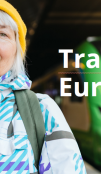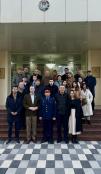Kholtoji Jumayeva: Empowering Blind Persons to Recognize and Resist Corruption
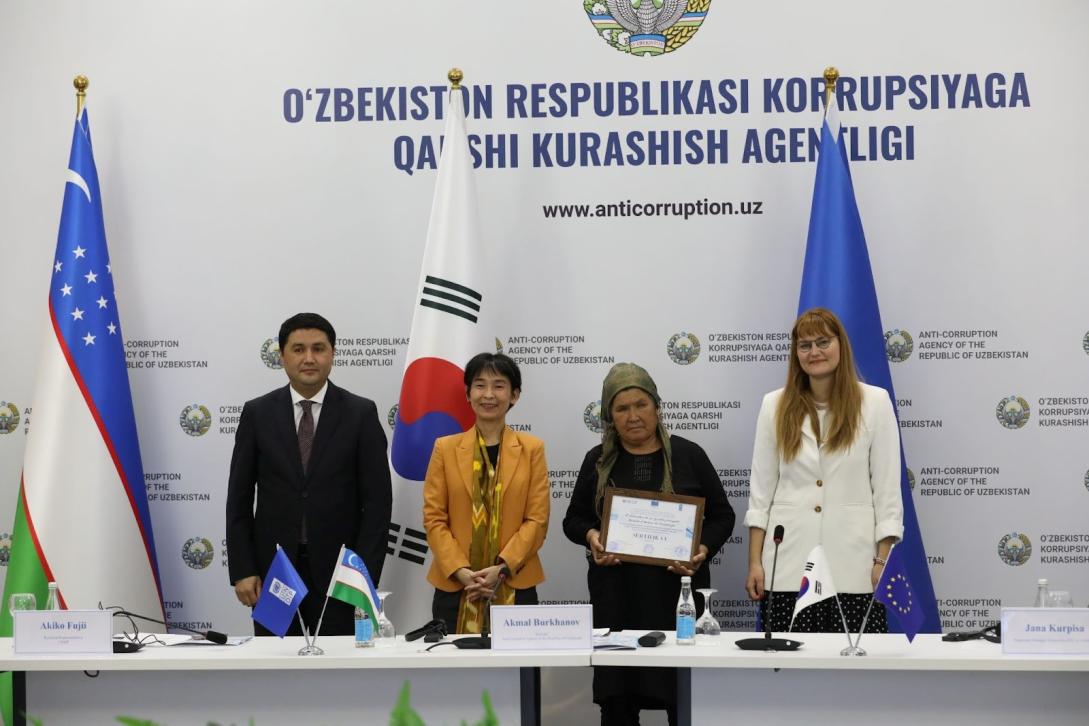
In the remote Karakul district of the Bukhara region, Uzbekistan, a quiet transformation is taking place, driven not by officials or large organizations, but by a determined woman and a community that has too often been overlooked.
For more than five decades, Kholtoji Jumayeva has worked with the Blind Society of Uzbekistan. And for the last 19 years, she has led the Karakul district branch with a singular vision: to ensure that blindness is not a barrier to dignity, rights, or justice.
“What blind persons lack is not just material things,” she says. “What they truly need is a better understanding of their rights. And even more so for those living in remote villages.”
In 2024, that vision took a big step forward when the Karakul District Branch of the Blind Society of Uzbekistan received its first international support, a small grant through the UNDP and the Anti-Corruption Agency’s call for proposals, financed by the European Union.
With the received financial support, her team launched a project titled “Preventing Corruption by Improving the Legal Culture of Persons with Visual Impairment.” The goal was simple: make the law known and accessible. For those who can't see printed text or read Braille, or who live far from legal aid services, the legislation on anti-corruption and a full understanding of their own legal rights were nearly impossible to access, until now.
They compiled the most essential information from 20 key legal documents related to anti-corruption into one guidebook titled “Corruption – An Axe to the Root of Development.” To ensure accessibility, the guide was produced in both audio and Braille formats. Audio versions were recorded onto portable radio speakers and distributed within the community of blind persons in Karakul.
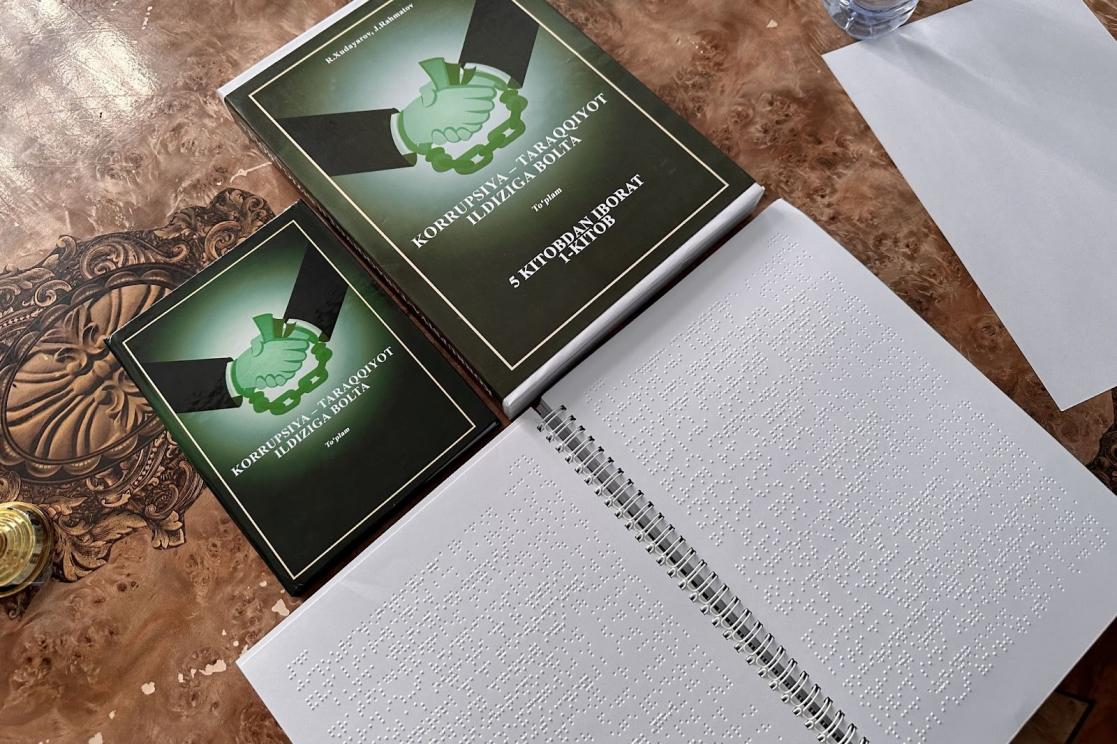
EU-funded UNDP Project
To expand access across the Bukhara region and beyond, the recordings were also uploaded to various Telegram groups used by the blind and visually impaired community, including the Press Service of the Blind Society of Uzbekistan; Special Library for the Blind of Khujaobod District; Library for the Blind of Karakul District; Blind Society of Mangit City of the Republic of Karakalpakstan; IT Group for the Blind; Library for the Blind of Urganch District; National Group for the Blind across Uzbekistan; “Bir Safda” Socio-public and Literary-artistic Journal.
Braille copies were shared among community members and placed in the organization’s local library, where visitors can read them on-site. In total, the materials reached over 40,000 people, many of whom, for the first time, were able to understand their rights and how to protect them.
“Now even those who have had limited opportunities to leave home and those who have never learned Braille, can listen and understand the law,” Jumayeva shares with quiet pride.
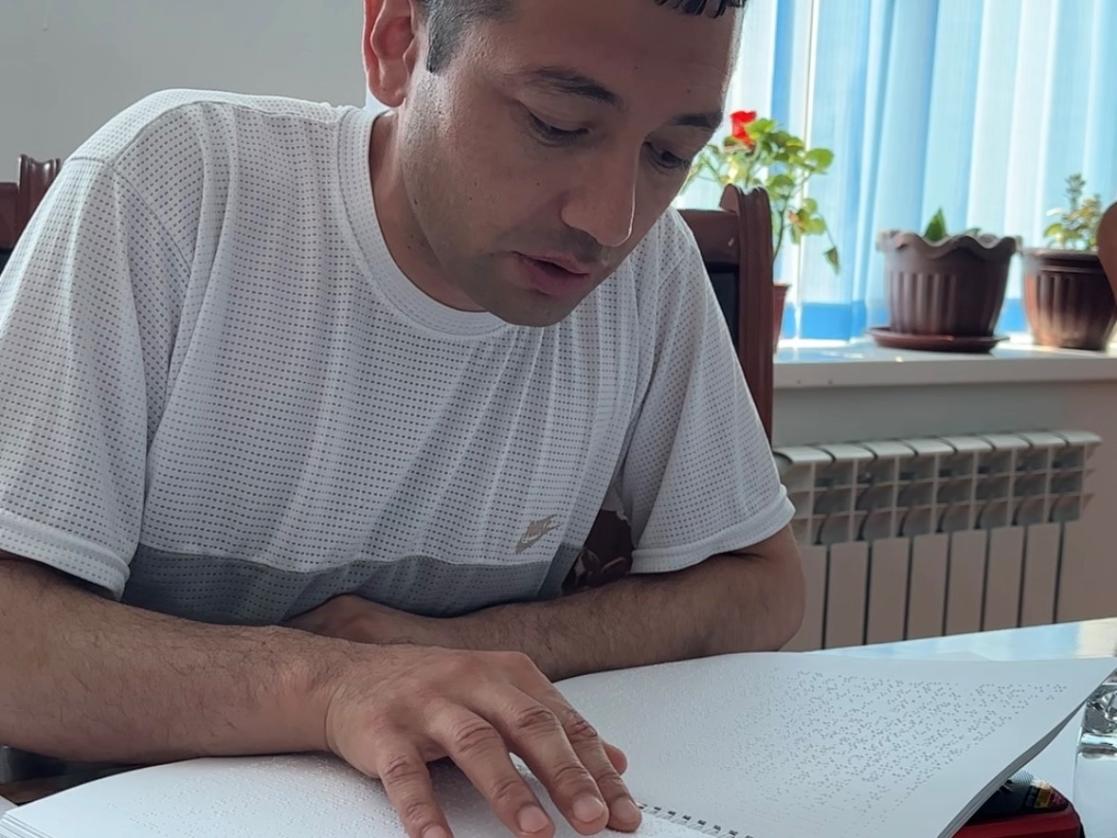
EU-funded UNDP Project
For one resident with visual impairment, the impact was immediate and life-changing.
He had been preparing to apply for a land subsidy auction worth 32 million soums when someone approached him with an “offer”: pay 10 million soums upfront in cash and they would “help” him secure it. It felt wrong, but he wasn’t sure. He turned to the Blind Society, and they recommended listening to the new audio guide on available legislation on anti-corruption. After listening, he realized the demand was a bribe and that even paying it would be illegal. Armed with this knowledge, he confronted the person, condemning the attempt to take advantage of someone with a visual impairment. He explained that the law guaranteed him the subsidy without any payment and made it clear he would not be tricked.
This kind of transformation is exactly what Jumayeva hoped for.
The project also organized three in-person training sessions, with over 100 participants, and one large online session, reaching over 1,000 blind persons across the country. Participants began to ask questions about the types of corruption and its consequences, challenge assumptions about their legal rights, and share what they learned with others in their villages. For many, it was the first time they realized they had the right to stand up and say no.

EU-funded UNDP Project
“The most issues our people face are related to money. That is why this project is so useful, so they can avoid corruption and receive fair services,” says Ms. Jumayeva.
In Karakul, what started as a legal awareness project became something much deeper: a movement of dignity, independence, and quiet resistance. A reminder that when people are given the tools to understand their rights, they can reshape their own futures, no matter their obstacles. The Karakul branch provides over 300 members with support in literacy, skills development, legal aid, employment opportunities, and recreational activities, while also reaching thousands more through remote platforms, accessible materials, and joint community events.
“Knowledge is power,” says Jumayeva. “And when we bring it to the people, we bring them justice.”

EU-funded UNDP Project
The grant was delivered within the joint project of the Anti-Corruption Agency of Uzbekistan and the UNDP “Strengthening the National Anti-Corruption Ecosystem in Uzbekistan,” funded by the European Union. In 2024, the project awarded low-value grants to eight CSOs across Bukhara, Fergana, and Tashkent, seven of which are women-led initiatives. Each targets corruption in a different sector, from healthcare and social inclusion to environmental rights and digital accesses.

